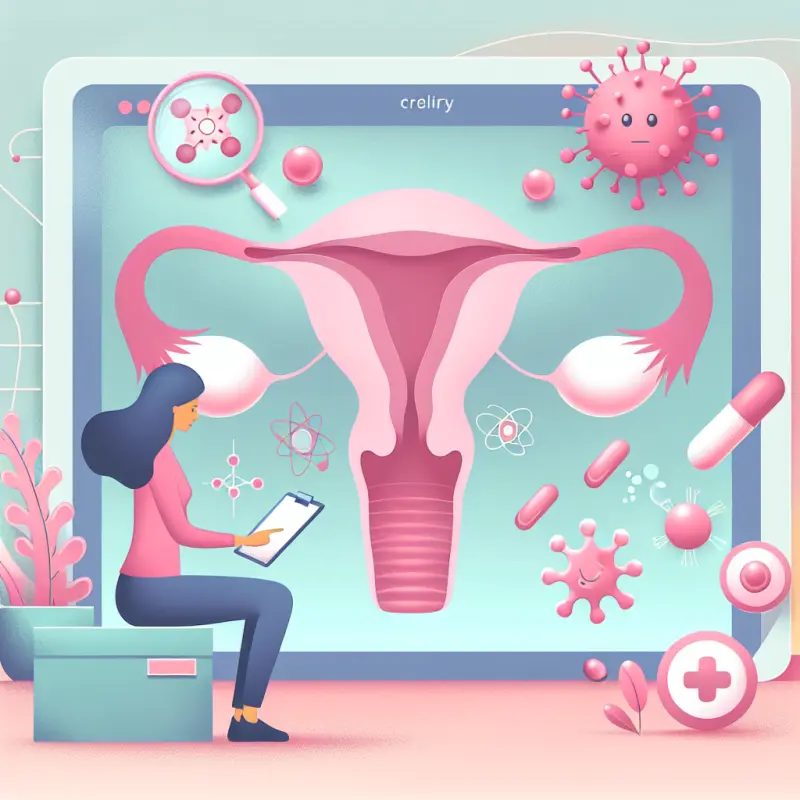The Link Between Endometriosis and Autoimmune Disorders

The Link Between Endometriosis and Autoimmune Disorders
Introduction
Endometriosis is a complex, chronic condition that affects millions of women worldwide. Recent research has highlighted a possible link between endometriosis and autoimmune disorders, raising important questions about shared risk factors, underlying mechanisms, and implications for treatment. This article explores the scientific evidence connecting endometriosis and autoimmune diseases, and what it means for women living with these conditions.
What is Endometriosis?
Endometriosis is a disorder in which tissue similar to the lining of the uterus grows outside the uterus, causing pain, inflammation, and sometimes infertility. The exact cause is unknown, but genetic, hormonal, and immune factors are believed to play a role.
What are Autoimmune Disorders?
Autoimmune disorders occur when the immune system mistakenly attacks the body’s own tissues. Common examples include lupus, rheumatoid arthritis, multiple sclerosis, and Hashimoto’s thyroiditis. Symptoms vary widely but often include fatigue, joint pain, and organ-specific issues.
Evidence Linking Endometriosis and Autoimmune Disorders
- Increased Prevalence: Studies show women with endometriosis are more likely to have autoimmune diseases such as lupus, rheumatoid arthritis, Sjögren’s syndrome, and autoimmune thyroid disorders.
- Shared Genetic Factors: Certain genetic markers may increase susceptibility to both endometriosis and autoimmune conditions.
- Immune System Dysfunction: Both conditions involve abnormal immune responses, including increased inflammation and altered immune cell activity.
- Chronic Inflammation: Persistent inflammation is a hallmark of both endometriosis and autoimmune diseases.
Common Autoimmune Disorders Associated with Endometriosis
- Systemic lupus erythematosus (SLE)
- Rheumatoid arthritis (RA)
- Multiple sclerosis (MS)
- Hashimoto’s thyroiditis
- Sjögren’s syndrome
- Inflammatory bowel disease (IBD)
Symptoms Overlap
- Chronic pain
- Fatigue
- Joint pain and stiffness
- Gastrointestinal symptoms
- Skin rashes
- Hormonal imbalances
Diagnosing Coexisting Endometriosis and Autoimmune Disorders
- Medical History and Symptom Review: Detailed assessment of symptoms and family history.
- Blood Tests: To check for markers of inflammation, autoantibodies, and hormone levels.
- Imaging Tests: Ultrasound, MRI, or CT scans to identify endometriosis and organ involvement.
- Specialist Referrals: Rheumatologists, endocrinologists, and other specialists may be involved in diagnosis and management.
Management Strategies
Lifestyle Modifications
- Diet: Anti-inflammatory diets may help manage symptoms of both conditions.
- Exercise: Regular physical activity can reduce inflammation and improve well-being.
- Stress Management: Mindfulness, meditation, and counseling can help manage the emotional impact.
Medical Treatments
- Pain Management: NSAIDs, acetaminophen, and other pain relievers.
- Hormone Therapy: Birth control pills, progestins, and other hormonal treatments for endometriosis.
- Immunosuppressive Medications: Used for autoimmune diseases to reduce immune system activity.
- Biologic Therapies: Target specific components of the immune system in autoimmune diseases.
Multidisciplinary Care
- Collaboration between gynecologists, rheumatologists, endocrinologists, and primary care providers is essential for optimal management.
Living with Endometriosis and Autoimmune Disorders
Living with both endometriosis and an autoimmune disorder can be challenging, but a comprehensive, individualized approach can improve quality of life. Support groups, counseling, and patient education are important resources.
Research and Future Directions
- Ongoing research is exploring the genetic and immunological links between endometriosis and autoimmune diseases.
- New therapies targeting immune system dysfunction are under development.
- Greater awareness and early diagnosis can improve outcomes for women with both conditions.
Conclusion
The connection between endometriosis and autoimmune disorders is an area of active research. Understanding this link can lead to better diagnosis, management, and support for women affected by these complex conditions.
Moone — Supporting you on your cycle journey.